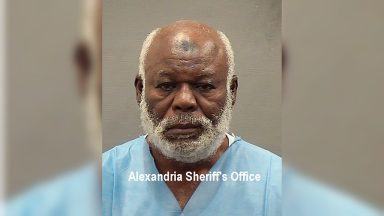The family of a toddler hit by a car driven by a pensioner with undiagnosed dementia have said the rules around the licensing of older drivers must be tightened “as quickly as possible”.
Xander Irvine was walking with his mother, Victoria, 37, when he was knocked down on Edinburgh’s Morningside Road by a Kia Picanto in June 2020.
Sheriff Principal Nigel Ross found the collision was caused by 91-year-old Edith Duncan losing control of the vehicle entirely due to her inability to perform a routine turning manoeuvre.
Xander died in the city’s Royal Hospital for Sick Children later the same day from “multiple injuries”.
Ms Duncan, who was facing prosecution for the incident, died a year later.
Ann Logan of law firm Balfour Manson, representing Xander’s family, said they hope the DVLA will act as quickly as possible to improve road safety following the findings of a Fatal Accident Inquiry.
Sheriff Ross said the collision could have been avoided if Ms Duncan’s cognitive ability had been properly assessed and authorities had subsequently moved to revoke her driving licence.
In his final written determination in October, he made several recommendations, including prioritising changing the present system of self-certification of fitness to drive.
Current DVLA rules mean that once a driver reaches 70, they must renew their licence every three years.
No driving tests need to be retaken, but a health declaration must be made, and any disabilities or conditions that affect driving – such as sight loss, MS or dementia must be reported.
If not, the driver can be fined, or their insurance may not be valid if an accident occurs.
Sheriff Ross described the current system of self-certification of fitness to drive for people over 70 as “significantly defective.”
“Revocation was both reasonable and required in light of her cognitive impairment and consequent inability to drive safely,” he found.
“Had reasonable precautions been taken, prior to the collision, to assess Edith Duncan’s cognitive ability, these would have identified that she required further assessment of her driving ability.
“That further assessment would have, in turn, led to the conclusion that she was significantly cognitively impaired and unfit to hold a driving licence.
“The DVLA would have revoked her licence on that basis. Accordingly, had her cognitive impairment been detected, the incident would have been avoided.”
He recommended an overhaul of the system, including limiting self-certification to people aged under 80 and requiring anyone over 80 to undertake a cognitive assessment before a renewed licence is granted.
“Failure to pass that assessment should result in both the application for renewal and any current licence being suspended pending further assessment,” wrote Sheriff Ross.
In a response on Friday, the DVLA said it does not, under current legislation, have a general power to require those applying for or holding a driving licence to submit to a medical examination.
It can, however, do so where there are “reasonable grounds to believe that the person is suffering from a disability which may now or in the future, cause the driving of a vehicle by the person to be a source of danger to the public.”
The driving licensing agency said: “Last year, the DVLA carried out a call for evidence about driver licensing for people with medical conditions.
“The call for evidence sought views on the current legislative basis for assessing fitness to drive and what changes may be made.
“This was an important first step in gathering a wide range of views and evidence that may support future changes to the legal framework.
“The DVLA is considering the research and evidence provided and the need for any further research that may be required to inform potential changes to the legislative framework governing driver licensing for those with medical conditions.
“This will include the process of self-declaration and the potential for the introduction of age-based testing.”
It added that the next medical advisory panel meeting will take place next spring.
Sheriff Ross also recommended that further questions be added to the current application form for renewing a driving licence to prompt information about recent driving history.
The sheriff’s recommendation to alter the self-certification of fitness to drive would require changes to primary legislation, which would be a matter for the UK Government to consider.
The DVLA said it accepted improvements could be made to the current application form to encourage drivers to consider more carefully whether they need to seek advice about their cognitive health and health in general before completing the statutory medical declaration required to renew driving entitlement.
The procurator fiscal, who acts in the public interest in such inquiries, led evidence on the facts and circumstances of Xander’s death including evidence from eyewitnesses, evidence on Ms Duncan’s medical condition and risks created by failing to identify drivers with dementia and other defects in the system of driver licensing.
Following the publication of the determination, Procurator Fiscal Andy Shanks, who leads on fatalities investigations for the Crown Office and Procurator Fiscal Service (COPFS) said: “Xander Irvine’s death was a devastating loss for his family. They have my heartfelt sympathy for all they have suffered.
“I welcome the sheriff’s determination which makes significant recommendations in relation to the fitness-to-drive requirements for drivers over 70 and a change to primary legislation.
“This was an incident that the Lord Advocate carefully considered and was satisfied that the circumstances made a compelling case for a discretionary Fatal Accident Inquiry.
“The procurator fiscal service will continue to keep in contact with the Irvine family and answer any questions they may have about the determination.
“My thoughts remain with the family at this difficult time.”
Follow STV News on WhatsApp
Scan the QR code on your mobile device for all the latest news from around the country

























